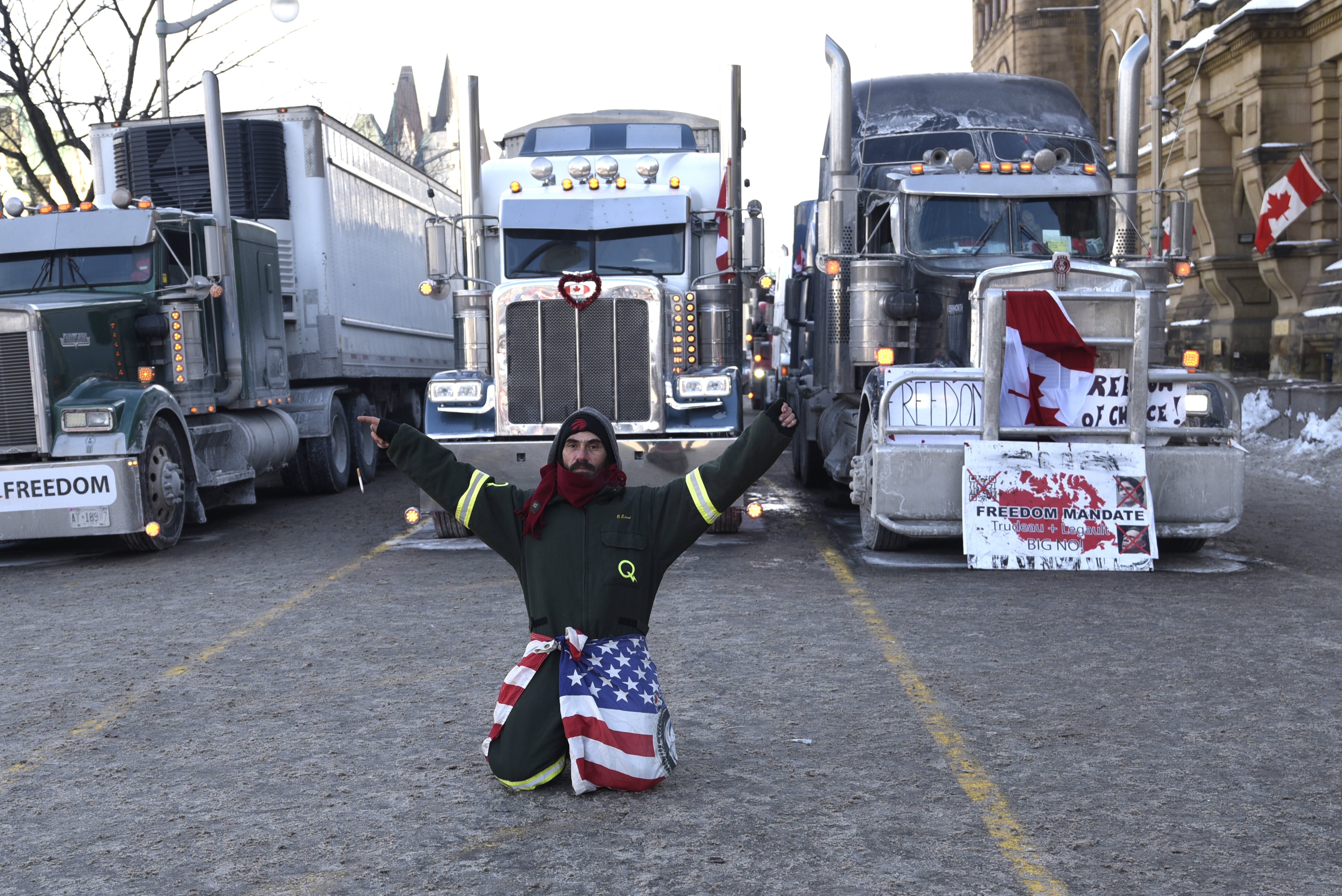Yes, mischief is a criminal offense in Canada. It includes willfully destroying property or making it dangerous or impossible to use. But this case is bigger than the violation of a silly-named law; it has ties to the polarizing issue of vaccine mandates and implications for freedom of speech and assembly.
A recap: Upset about a federal law requiring unvaccinated drivers to quarantine when returning from the US, the truckers paralyzed Ottawa, snarling the streets around Parliament for three weeks. They also blockaded the Ambassador Bridge – the busiest international border crossing in North America. The Canadian government deemed it an “occupation,” prompting Trudeau to implement the Emergency Act for the first time in Canada’s history. This allowed the police to clear the streets, impose temporary bans on public assembly, and freeze protesters’ bank accounts. It also galvanized far-right activists on both sides of the border and inspired similar protests from Washington, DC, to New Zealand.
The convoy leaders, Tamara Lich and Chris Barber, pleaded not guilty to charges that could land them 10-year sentences. They argue that taking part in a peaceful demonstration does not warrant criminal action, but prosecutors highlight the disruption to city residents and cross-border trade. The outcome will likely impact an upcoming protester trial in November.
What do you think? Do the protests justify criminal charges? Let us know here.
